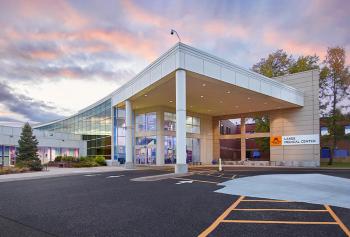
Community Is Fundamental to Population Health
This year’s meeting focused heavily on the need for grassroots efforts to improve health in communities.
Baseball legend Darryl Strawberry closed out the 18th Population Health Colloquium in Philadelphia, Pennsylvania today.
Population health sits at an intersection of public health, policy, and analytics. But at the Population Health Colloquium in Philadelphia this week, speaker after speaker emphasized how important grassroots community efforts would shape the field’s fate.
From David Nash, MD, highlighting social determinants of health in his opening comments to Darryl Strawberry speaking passionately about fighting drug addiction in the closing speech, the need for people in healthcare to work actively in their communities cropped up repeatedly.
Certainly, broader policy and infrastructure ideas were present. Two former Department of Health and Human Services Secretaries, Thommy Thompson (2001 to 2005) and Mike Leavitt (2005 to 2009) spoke at the meeting. Leavitt compared the current dynamics—with so many streams of data and growing stress on America’s health payment system—to “the fog of war” before drilling into various value-based care mechanisms.
But their speeches came immediately after 1 in which Authority Health’s Chris Allen
The day before, Alan Morgan detailed the unique challenges that rural communities are facing as dozens and dozens of hospitals closed there—but also the potential rural areas persent as testing grounds for health reform research trials.
One of the meeting’s most spirited speakers, Brent James, a senior advisor for Leavitt’s own consulting and analytics firm, said that “One of the worst things we do is get distracted by the show in Washington.” Real change would have to come from the ground up, starting local. It seems like health institutions are beginning to step up in their own communities. Numerous hospitals and communities are pursuing their own local studies and initiatives:
Strawberry, a former professional baseball player, may have raised a few eyebrows when his name appeared in the Colloquium’s program. But his speech fit the spirit of the meeting: He’s in his 14th year of recovery from drug addiction and he spoke about finding bonds among people with shared struggles. The rural and poor do not have a monopoly on loneliness and stress, and he was adamant that the current opioid crisis was ravaging communities regardless of race or income—and for that reason, it should bring those communities together to find solutions.
“I was rich, famous, I’ve been privileged my whole life,” he said. But emptiness from an abusive childhood led his wife to have to drag him “out of a dope house” 14 years ago. He now runs a treatment center. He nodded to the MDs and PhDs all around him, saying that degrees were great, but it was invaluable for people in recovery to work with those who share their experiences and “speak the language of addiction and recovery.”
In introducing that final speech,
“It’s not about competition, it’s about working together in a society that’s very broken,” he said.



































